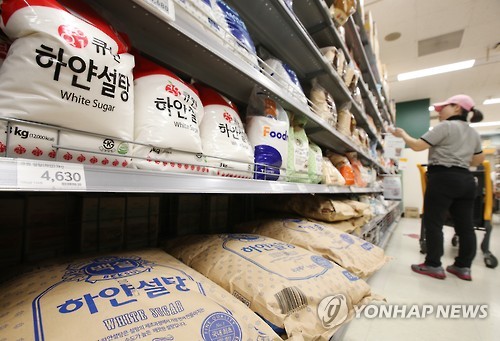Anchor: Marking World Health Day on Thursday, the South Korean government launched an all-out campaign calling for limiting sugar intake to ten percent per an individual’s total daily caloric consumption. For an average Korean man, this means eating less than 17 sugar cubes a day.
Our Kim Bum-soo tells us more.
Report: The government has declared war on sugar.
The Ministry of Food and Drug Safety on Thursday launched an all-out campaign to cut sugar consumption for South Koreans.
The plan calls for limiting the amount of sugar from processed foods other than milk within ten percent of an individual’s caloric intake per day.
That means an average person who is on a two-thousand calorie diet should eat 50 grams, or less than 17 sugar cubes, a day.
As of 2013, an average South Korean consumed about 44-point-seven grams of sugar daily. That makes up less than nine percent of the total recommended calorie consumption, but the government is concerned about a rising trend.
In 2011, sugar took up an average seven-point-seven percent of one’s daily intake, rose to eight-point-one percent the following year, and reached eight-point-nine percent in 2013.
The ministry said that those whose sugar consumption is over the ten-percent range are 66 percent more likely to suffer high blood pressure and 41 percent more prone to diabetes. The South Korean government estimates that the socioeconomic cost of obesity amounts to six trillion won, or about five-point-two billion dollars.
While citing public health concerns, the ministry said it will require food companies to write additional nutritional information on their products and publicize recipes using less sugar.
It will also monitor sugar levels in food served at childcare centers, expand research on ways to cut sugar in common recipes used for home meals and expand publication of nutritional information on foods containing the substance.
A food and drug ministry official said that the government is organizing a cooking competition in search for new recipes that are pleasant to the palate but do not contain so much sugar.
Kim Bum-soo, KBS World Radio News.


